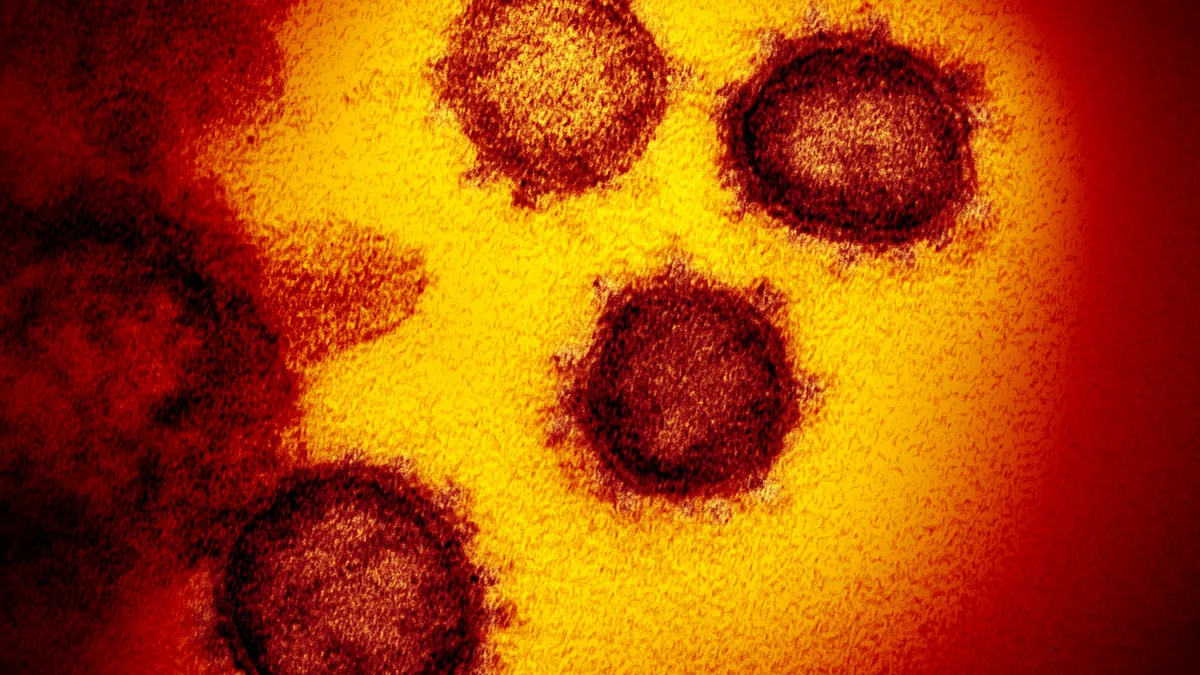Dive Brief:
-
BioFire Diagnostics has become the first company to win a full FDA marketing authorization for a COVID-19 test. The authorization covers the test for multiple respiratory pathogens.
-
All other COVID-19 tests have emergency use authorization, meaning they are only permitted for use during the U.S. public health crisis. Test developers will need to get diagnostics authorized using traditional premarket review processes to support post-pandemic use.
-
BioFire has cleared the way for other companies to secure full authorizations through its use of the De Novo pathway. Subsequent applicants can demonstrate substantial equivalence to BioFire's respiratory panel and use the 510(k) pathway.
Dive Insight:
If, as many experts expect, SARS-CoV-2 becomes endemic and continues to circulate after the current crisis abates, there will remain a need for COVID-19 tests after the U.S. declares an end to the public health emergency. As it stands, the ending of the public health emergency would prevent use of the vast majority of COVID-19 tests.
BioFire Respiratory Panel 2.1 (RP2.1) is currently the sole exception. FDA authorized the diagnostic using its De Novo review pathway, clearing BioFire, which is part of French biotechnology company bioMérieux, to continue selling the diagnostic panel after the public health emergency ends. The approval replaces a prior EUA.
The panel is a PCR-based kit that tests nasopharyngeal swabs for almost 20 respiratory pathogens, including SARS-CoV-2. Using the test, a physician could determine whether a patient with respiratory symptoms is infected with the pandemic coronavirus or any of a number of viruses and bacteria that have similar effects.
BioFire secured the full FDA authorization by submitting additional data, on top of the information it provided to land an EUA last year. The new data came from a clinical study of more than 500 samples that, in FDA's words, "demonstrated a reasonable assurance that the BioFire RP2.1 was safe and effective at identification and differentiation of various respiratory viral and bacterial pathogens."
FDA created special controls, setting out requirements for labeling and performance testing, as part of the De Novo process. The process created a 510(k) pathway that other companies can use to take a shortened path to full approval. GenMark Diagnostics — the company Roche is set to buy for $1.8 billion — Luminex Molecular Diagnostics and Qiagen each has a respiratory panel with EUA, although none of the products test for exactly the same list of pathogens as BioFire's kit.
The vast majority of COVID-19 kits only test for SARS-CoV-2. FDA expects the developers of some of those tests to gain full authorization for their products in the future.
"We continue to work with diagnostic manufacturers to take the next step of ensuring products are FDA reviewed for safety and effectiveness and authorized for marketing under our traditional premarket authorities. While this is the first marketing authorization for a diagnostic test using a traditional premarket review process, we do not expect this to be the last," Janet Woodcock, acting FDA commissioner, said in a statement.










